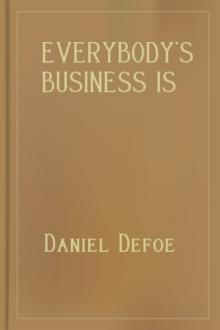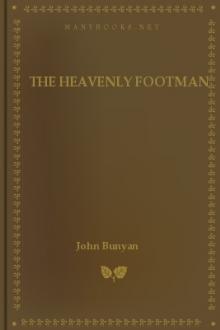Genre Essay. Page - 3

o fine enough: it is a hard matter to know the mistress from the maid by their dress; nay, very often the maid shall be much the finer of the two. Our woollen manufacture suffers much by this, for nothing but silks and satins will go down with our kitchen-wenches; to support which intolerable pride, they have insensibly raised their wages to such a height as was never known in any age or nation but this.
Let us trace this from the beginning, and suppose a person has a servant-maid sent him out of the country, at fifty shillings, or three pounds a year. The girl has scarce been a week, nay, a day in her service, but a committee of servant-wenches are appointed to examine her, who advise her to raise her wages, or give warning; to encourage her to which, the herb-woman, or chandler-woman, or some other old intelligencer, provides her a place of four or five pounds a year; this sets madam cock-a-hoop, and she thinks of nothing now but vails and high wages, and so gives warning from place to place, till sh

e the way is long, (I speak metaphorically,) and there is many a dirty step, many a high hill, much work to do; a wicked heart, world, and devil to overcome. I say there are many steps to be taken by those that intend to be saved, by running, or walking, in the steps of that faith of our father Abraham. Out of Egypt thou must go through the Red Sea; thou must run a long and tedious journey, through the vast howling wilderness, before thou come to the land of promise.
4. They that will go to heaven must run for it; because, as the way is so long, so _the time in which they are to get to the end of it is very uncertain_. The time present is the only time; thou hast no more time allotted thee than that thou now enjoyest. "Boast not thyself of to-morrow, for thou knowest not what a day may bring forth." Do not say, 'I have time enough to get to heaven seven years hence;' for I tell thee, the bell may toll for thee, before seven days more be ended. When death comes, away thou must go, whether thou

company as believing in an Eternal life, and endeavour to draw any conclusions, from this assumed belief, as to their present business, they will forthwith tell you that what you say is very beautiful, but it is not practical. If, on the contrary, you frankly address them as unbelievers in Eternal life, and try to draw any consequences from that unbelief,--they immediately hold you for an accursed person, and shake off the dust from their feet at you. And the more I thought over what I had got to say, the less I found I could say it, without some reference to this intangible or intractable part of the subject. It made all the difference, in asserting any principle of war, whether one assumed that a discharge of artillery would merely knead down a certain quantity of red clay into a level line, as in a brick field; or whether, out of every separately Christian-named portion of the ruinous heap, there went out, into the smoke and dead-fallen air of battle, some astonished condition of soul, unwillingly released

of sense is but a small part of the pleasure he actually experiences.That pleasure, as a whole, is a highly complex thing, and rests mainlyon a basis that, by a little knowledge, could be annihilated in amoment. Tell the boy what the champagne really is, he has been praising;and the state of his mind and face will undergo a curioustransformation. Our sense of the worth of life is similar in itscomplexity to the boy's sense of the worth of his wine. Beliefs andassociations play exactly the same part in it. The beliefs in this lastcase may of course be truer. The question that I have to ask is, arethey? In some individual cases certainly, they have not been. MissHarriet Martineau, for instance, judging life from her own experience ofit, was quite persuaded that it was a most solemn and satisfactorything, and she has told the world as much, in no hesitating manner. Buta part at least of the solemn satisfaction she felt in it was due to agrotesque over-estimate of her own social and intellectual importance.Here, then, was a worth in life, real enough to the person who found it,but which a little knowledge of the world would have at once taken awayfrom her. Does the general reverence with which life is at presentregarded rest in any degree upon any similar misconception? And if so,to what extent does it? Will it fall to pieces before the breath of alarger knowledge? or has it that firm foundation in fact that willenable it to survive in spite of all enlightenment, and perhaps even toincrease in consequence of it?
Such is the outline of the question I propose to deal with.

It is as it stands now the frank confession of what one man of the early Twentieth Century has found in life and himself, a confession just as frank as the limitations of his character permit; it is his metaphysics, his religion, his moral standards, his uncertainties and the expedients with which he has met them. On every one of these departments and aspects I write--how shall I put it?--as an amateur. In every section of my subject there are men not only of far greater intellectual power and energy than I, but who have devoted their whole lives to the sustained analysis of this or that among the questions I discuss, and there is a literature so enormous in the aggregate that only a specialist scholar could hope to know it. I have not been unmindful of these professors and this literature; I have taken such opportunities as I have found, to test my propositions by them. But I feel that such apology as one makes for amateurishness in this field has a lesser quality of self-condemnation than if one were dealing with narrower, more defined and fact-laden matters. There is more excuse for one here than for the amateur maker of chemical theories, or the man who evolves a system of surgery in his leisure. These things, chemistry, surgery and so forth, we may take on the reputation of an expert, but our own fundamental beliefs, our rules of conduct, we must all make for ourselves. We may listen and read, but the views of others we cannot take on credit; we must rethink them and "make them our own." And we cannot do without fundamental beliefs, explicit or implicit. The bulk of men are obliged to be amateur philosophers,--all men indeed who are not specialized students of philosophical subjects,--even if their philosophical enterprise goes no further than prompt recognition of and submission to Authority.

have mentioned. One of these was, the prospect of his succeedingto an old lady, a distant relation, who was known to be possessed ofa very large sum in the stocks: but in this their hopes weredisappointed; for the young man was so untoward in his disposition,that, notwithstanding the instructions he daily received, his visitsrather tended to alienate than gain the good-will of his kinswoman.He sometimes looked grave when the old lady told the jokes of heryouth; he often refused to eat when she pressed him, and was seldomor never provided with sugar-candy or liquorice when she was seizedwith a fit of coughing: nay, he had once the rudeness to fallasleep while she was describing the composition and virtues of herfavourite cholic-water. In short, be accommodated himself so ill toher humour, that she died, and did not leave him a farthing.
The other method pointed out to him was an endeavour to get a leaseof some crown-lands, which lay contiguous to his little paternalestate. This, it was im

r with nine inconveniences and mischiefs that attend those churches where unity and peace is wanting.
IV. And, lastly, I shall give you twelve directions and motives for the obtaining of it.
1. As touching the sense of the text, when ye are counselled to keep the unity of the Spirit, we are not to understand the Spirit of God, as personally so considered; because the Spirit of God, in that sense, is not capable of being divided, and so there would be no need for us to endeavour to keep the unity of it.
By the unity of the spirit then, we are to understand that unity of mind which the Spirit of God calls for, and requires Christians to endeavour after; hence it is that we are exhorted, by one spirit, with one mind, to strive together for the faith of the gospel; Phil. i. 27.
But farther, the apostle in these words alludes to the state and composition of a natural body, and doth thereby inform us, that the mystical body of Christ holds an analogy with the natural body of man: as, 1.

he Choice ofParis and The Apples of the Hesperides.]
The tree is mentioned in at least three places in the Old Testament,and its fruit in two or three more. Solomon sings, "As the apple-tree among the trees of the wood, so is my beloved among the sons."And again, "Stay me with flagons, comfort me with apples." Thenoblest part of man's noblest feature is named from this fruit, "theapple of the eye."
The apple-tree is also mentioned by Homer and Herodotus. Ulysses sawin the glorious garden of Alcinous "pears and pomegranates andapple-trees bearing beautiful fruit." And according to Homer, appleswere among the fruits which Tantalus could not pluck, the wind everblowing their boughs away from him. Theophrastus knew and describedthe apple-tree as a botanist.
According to the prose Edda, [Footnote: The stories of the earlyScandinavians.] "Iduna keeps in a box the apples which the gods,when they feel old age approaching, have only to taste of to becomeyoung again. It is in this manner that the

hings holy that were therein contained, and especially, the priest and clerk most happy, and without doubt, greatly blessed, because they were the servants, as I then thought, of God, and were principal in the holy temple, to do His work therein.
17. This conceit grew so strong in a little time upon my spirit, that had I but seen a priest (though never so sordid and debauched in his life), I should find my spirit fall under him, reverence him, and knit unto him; yea, I thought, for the love I did bear unto them (supposing them the ministers of God), I could have laid down at their feet, and have been trampled upon by them; their name, their garb, and work did so intoxicate and bewitch me.
18. After I had been thus for some considerable time, another thought came in my mind; and that was, whether we were of the Israelites or no? For finding in the scripture that they were once the peculiar people of God, thought I, if I were one of this race, my soul must needs be happy. Now again, I found within
